What Zuckerberg's goat tells us about tech billionaires
- Published
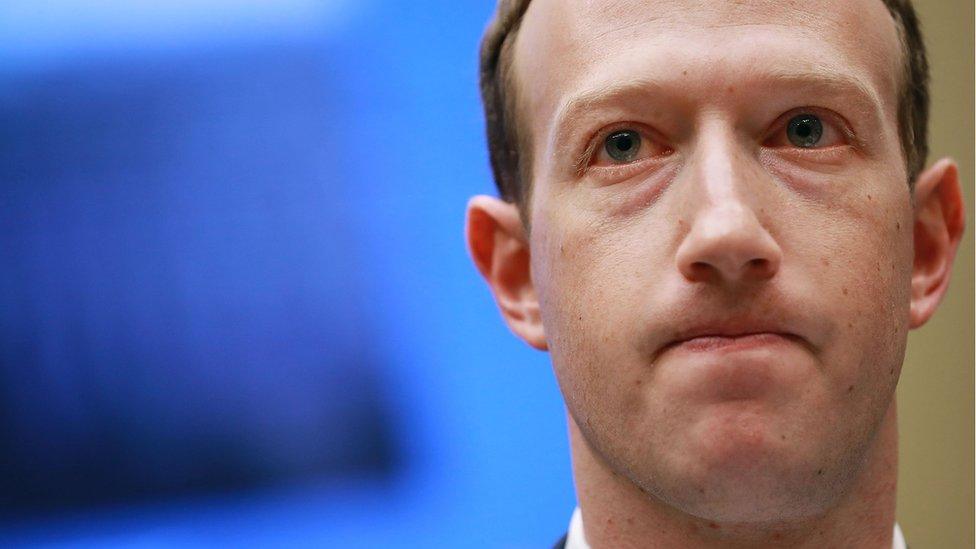
Mark Zuckerberg is known for setting yearly challenges
The revelation that Facebook's Mark Zuckerberg had fed cold goat killed by his own hand to Twitter founder Jack Dorsey was met with gleeful chuckles.
That one of the world's richest men had taken to slaughtering his own goats with what was described as "a laser gun" is just the sort of eccentricity we demand from our billionaires.
The fact that, after having performed this feat, he then apparently failed to properly cook the aforementioned goat was just the icing on the cake.
But this revelation - made in an interview with Dorsey in Rolling Stone magazine, external - is not as weird as it first appears.
It is not clear exactly when the goat dinner took place, but speculation places it in 2011. That's the same year the Facebook founder challenged himself to only eat animals he killed himself.
At the time, he said he wanted to be "thankful for the food I have to eat". Which is no bad thing. He also used, Dorsey clarified, a "stun gun" rather than lasers to kill the animal.
More to the point, when it comes to the eccentricities of the world's tech billionaires, killing your own food barely registers. Frankly, there are far more worthy winners of the crown.
John McAfee: The would-be president
The septuagenarian software developer is currently trying to build up support for his bid to be the next US president.
This in itself isn't an odd thing for a successful businessman, of course. What is odd is that he says he is currently on the run from the authorities over tax issues and is on a boat at sea, evading capture (but posting regular updates to Twitter).
But don't worry, he has a plan to get elected. It goes like this: once a month, thousands of people are going to gather at different points around the country, all wearing John McAfee masks, while the actual McAfee's voice is blasted through loudspeakers.
Allow X content?
This article contains content provided by X. We ask for your permission before anything is loaded, as they may be using cookies and other technologies. You may want to read X’s cookie policy, external and privacy policy, external before accepting. To view this content choose ‘accept and continue’.

That is correct. McAfee, whose software has protected millions of computers from viruses, will be running his 2020 presidential campaign from exile thanks to people in masks.
It should be noted he is no stranger to disguise. He fled his central American home back in 2012 with stained teeth and dyed hair after police began investigating him over his neighbour's death. McAfee has said he has no connection with the crime.
Peter Thiel: Waiting for the apocalypse?
Possibly the least recognisable name on the list, but by no means the least inventive when it comes to spending his hard-earned cash.
German-born Thiel, who founded PayPal, is known as a philanthropist, and also a keen advocate for "fighting ageing, fighting death, fighting decline", as he told the BBC's Business Daily. Whether or not that means he is putting money into finding a cure for death is unclear.
However - according to reports - he does have a plan for the apocalypse, in the shape of a very nice lake-front estate in New Zealand.
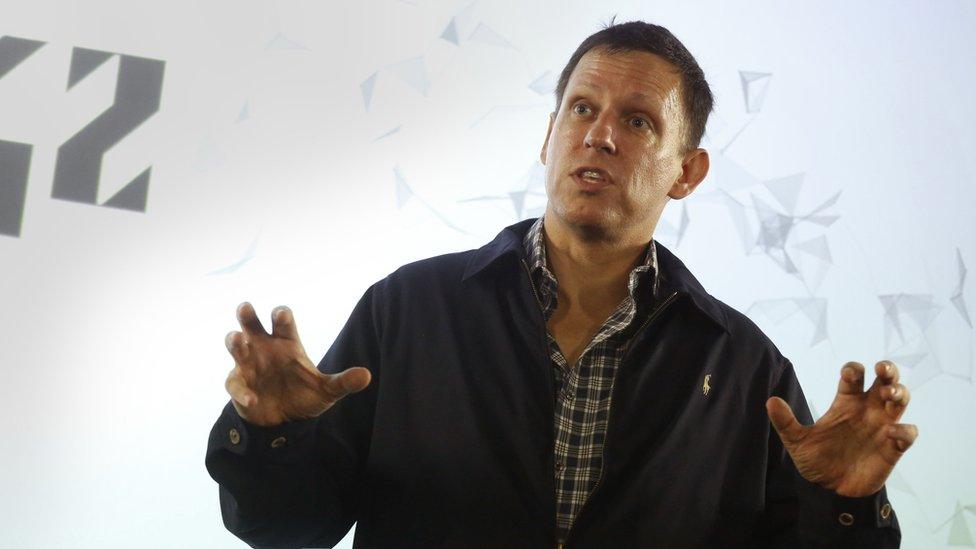
Peter Thiel spends a lot of his money on philanthropy
Okay, so Thiel has never actually said that was why he bought the property. However, he wouldn't be alone if he had.
Reid Hoffman, who co-founded LinkedIn, told the New Yorker in 2017 that upwards of 50% of Silicon Valley's richest residents had snapped up their own apocalypse-proof properties, external.
"Saying you're 'buying a house in New Zealand' is kind of a wink, wink, say no more," he told the magazine.
"Once you've done the Masonic handshake, they'll be, like, 'Oh, you know, I have a broker who sells old ICBM silos, and they're nuclear-hardened, and they kind of look like they would be interesting to live in.'
Elon Musk: Future coloniser
Where to even start? Elon Musk has become known for his headline-grabbing antics in recent years - a lot of them involving tweets.
But probably his most eccentric plans revolve around his ambitions for Mars, which he wants to start colonising as soon as possible due to the risk of a third world war.
He told an audience in Texas last year that such a colony would reduce the chance of an extended new Dark Age if a nuclear conflict were to wipe out life on Earth.
But it is not all doom and gloom in this new colony. It should definitely, he said, have pizza places.
Jack Dorsey: The silence-seeker
Dorsey may have reminded the world of Zuckerberg's penchant for killing his own dinner, but he is not without his own eccentricities.
It is thanks to Dorsey that some 6,000 tweets are sent a second, arguably making Twitter the nosiest place on Earth.
But Dorsey, who co-founded the company back in 2006, is a fan of silence.
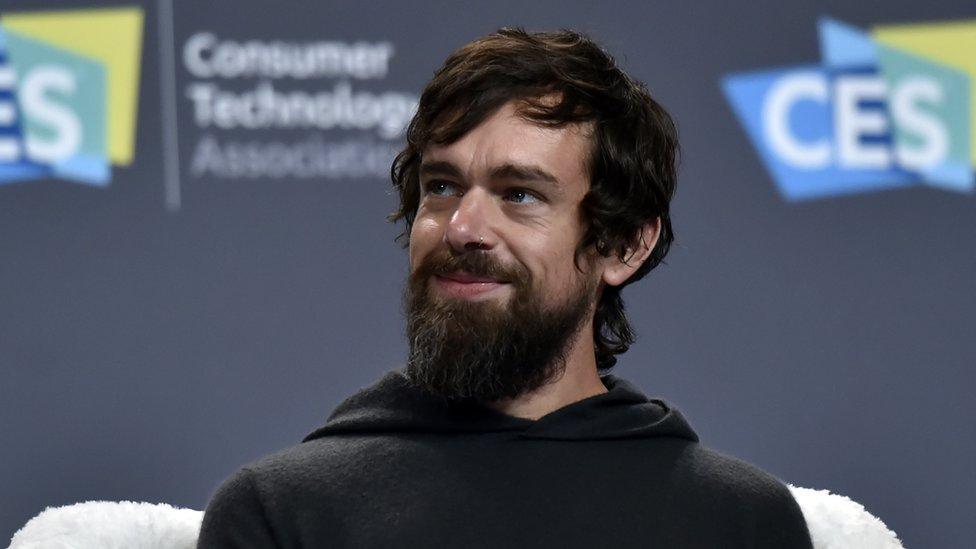
Jack Dorsey was forced to apologise after visiting Myanmar
So much so, the 42-year-old, whose estimated net worth is somewhere in the region of $6.8bn (£5.2bn), likes to spend 10 days a year in complete silence.
The theory is it should give greater personal insight.
However, people questioned just how effective this was after he encouraged his followers to visit the location of his 2018 retreat - Myanmar, where the military crackdown on the Rohingya minority has left thousands dead.
Dorsey apologised quickly - by sending a tweet.
Jeff Bezos: Surprisingly frugal
A final nod for eccentricity has to go to Jeff Bezos, the world's richest man.
But it is not because of dreams of space exploration or eternal life that the Amazon founder deserves a mention in this list.
Instead, it is his rejection of the world's supercars in favour of a Honda Accord even after he had earned his first billion back in 1999.
"It was clear that Maseratis and yachts didn't mean anything to him," Bob Simon, who conducted the interview back in 1999, told CBS, external later.
And that makes him a truly eccentric tech billionaire.
- Published12 December 2018
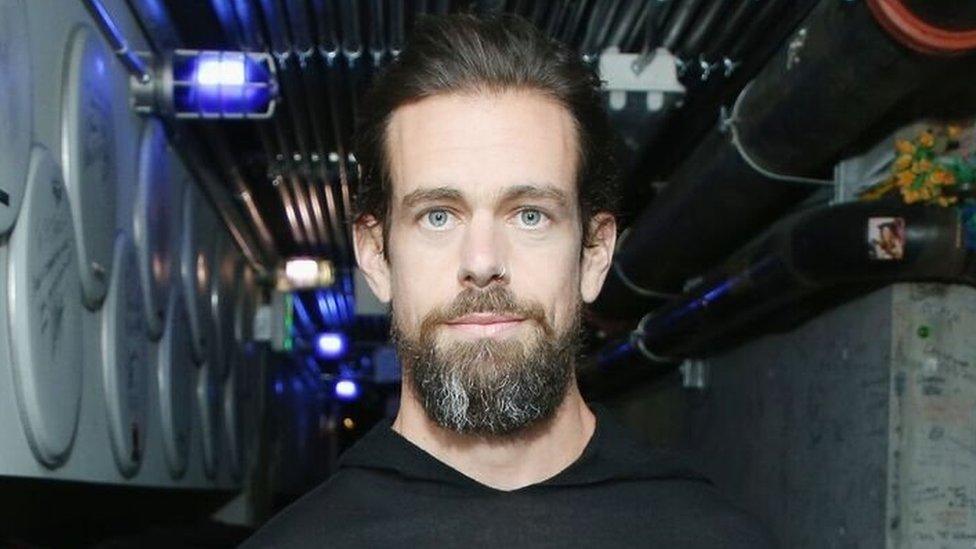
- Published27 May 2016
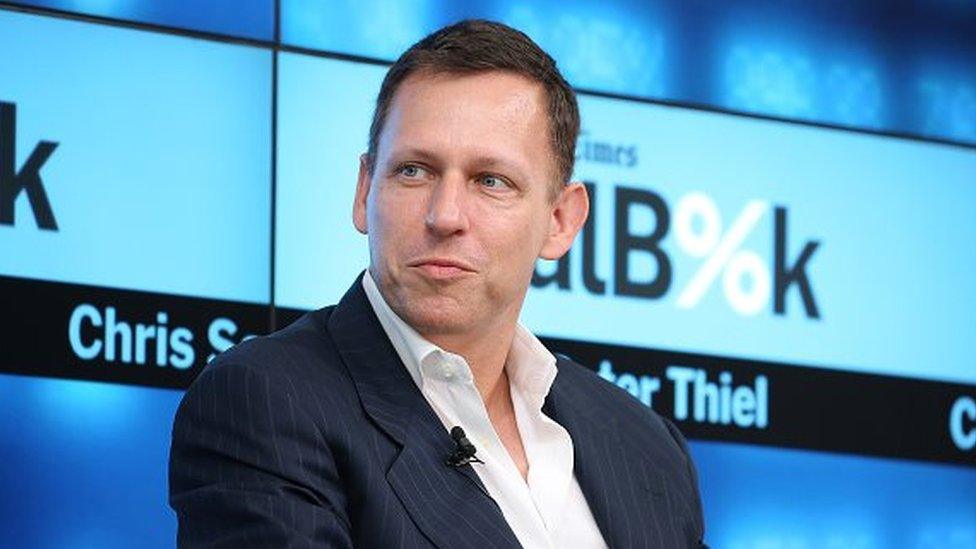
- Published16 November 2018
- Published14 August 2018
